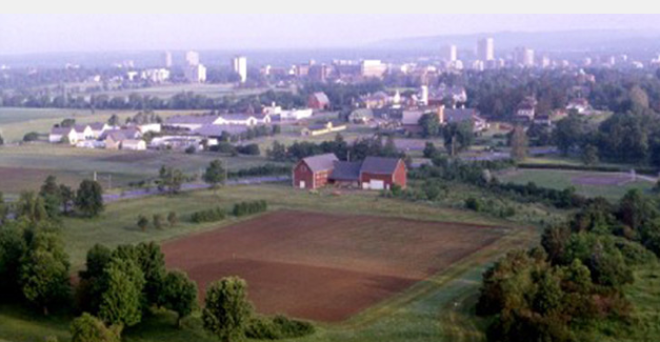Coalition Fights to Save Experimental Farm in Ottawa
The Western Producer, By Robert Amason
A coalition of scientists and heritage advocates are trying to save what may be the second oldest piece of agricultural research land in the world.
The farmland isn’t in Egypt or in Iraq; it’s a 15-minute drive from Canada’s House of Commons.
In 2014, the federal government ceded 60 acres of land from the Agriculture Canada Central Experimental Farm in Ottawa so that the Civic Campus of the Ottawa Hospital could rebuild.
The federal government established the Central Experimental Farm in 1886, one of the five original research farms in Canada. It was designated a national historic site in 1997.
The farm has 500 acres of land dedicated to research, but the 60 acres designated for the hospital are the most valuable.
“Field No. 1 has been Field No. 1 since 1886. It’s probably the second oldest … continuously monitored piece of agricultural land in the world,” said Julie Harris, who runs Contentworks, an Ottawa firm that preserves Canadian heritage.
Fifty scientists and concerned citizens, including Harris, sent a letter in November to agriculture minister Lawrence MacAulay, environment minister Catherine McKenna and heritage minister Melanie Joly, asking the government to reconsider the decision.
In the letter, they said the 60 acres are irreplaceable and globally significant. The Intergovernmental Panel of Climate Change has used research from the site for its reports.
“The CEF has been conducting long-range studies on the effect of climate change on agricultural lands … which tie in to data from the meteorological station located on the farm,” the letter said.
“The research cannot be transplanted elsewhere.”
Research from Field No. 1 also helped:
– develop Marquis wheat
– create the first varieties of soybeans suitable for Canada
– develop fusarium head blight resistance in wheat
Harris said scientists need Field No. 1 to continue critical, long-term research.
“At the moment, there are 21 agricultural research projects happening on that piece of land,” she said.
The letter said the former government made the 60 acres available for the hospital for $1.
“In order to give the land to the province for $1, they first had to transfer the land from Agriculture Canada to the National Capital Commission (which manages federal land in the Ottawa region),” Harris said.
“A memorandum of understanding has been signed with the hospital, saying the next step (is) you get the land for a $1.”
The coalition agreed that the hospital should be rebuilt, but the history and science from Field No. 1 shouldn’t be sacrificed.
It is asking the government to open the process and consult with all interested parties to formulate a ‘win, win’’ outcome in which the hospital project proceeds and the Central Experimental Farm retains its valuable land.
